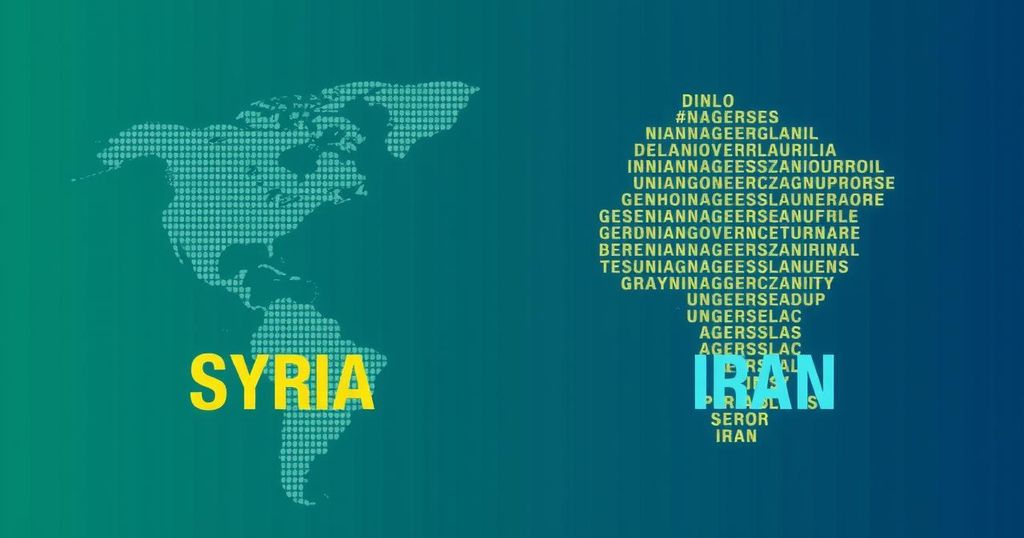Global Humanitarian and Human Rights Developments: Syria, Iran, and South Sudan

The article addresses the worsening humanitarian crisis in Syria due to intensified violence, including an airstrike impacting humanitarian operations, while in Iran, survivors of the 2022 protests seek justice for past abuses. Additionally, South Sudan is preparing for its first democratic elections, with calls for civic engagement and governance reform to ensure a successful electoral process.
The humanitarian crisis in Syria is escalating, propelled by ongoing violence which has led to increased civilian casualties and the suspension of humanitarian operations. The United Nations Office for the Coordination of Humanitarian Affairs (OCHA) reported a recent airstrike at the Ad Dabousiyah border crossing with Türkiye, which killed a Syrian Arab Red Crescent volunteer among others. This incident underscores the severe challenges faced by aid organizations and necessitates the protection of humanitarian workers under international law. Furthermore, violence in Idlib and western Aleppo has tragically resulted in the death and injury of young children, prompting several NGOs to halt operations in the region. Despite these obstacles, aid deliveries from organizations such as WHO, UNHCR, and UNICEF continue to persevere through the Bab Al-Hawa crossing.
In Iran, survivors of the 2022 ‘Women, Life, Freedom’ protests are advocating for accountability and justice following a brutal crackdown by the authorities. An Independent International Fact-Finding Mission met with over fifty survivors in Germany, who recounted their experiences of torture and arbitrary detention. Sara Hossain, Chair of the Mission, highlighted the necessity of a victim-centered approach, emphasizing the importance of listening to survivors’ expectations for action. The Mission aims to compile a report for the Human Rights Council with recommendations directed at rehabilitation and accountability in March 2025.
Lastly, in South Sudan, the head of the UN Mission, Nicholas Haysom, called upon provincial governors to prepare for the nation’s first democratic elections scheduled for December 2026. During the Governors’ Forum in Juba, he urged leaders to create an environment conducive to civic freedoms and to ensure the provision of basic services as a foundational step toward peace and stability. Haysom’s remarks stress the pivotal role of state leadership in fostering democratic engagement and addressing developmental issues in the country.
The current humanitarian landscape in Syria is marked by ongoing conflicts that have severely impacted civilian life and hindered humanitarian efforts. The situation is exacerbated by recent airstrikes, which have resulted in the closure of key humanitarian supply routes. In Iran, the aftermath of the protests against oppressive laws has revealed extensive human rights violations, with international bodies now seeking justice for affected individuals. Similarly, South Sudan stands on the brink of its first democratic elections, highlighting the importance of civic freedoms and effective governance to foster a stable democratic process.
In conclusion, the reports from Syria, Iran, and South Sudan illustrate the complexities of humanitarian needs and human rights challenges in these regions. The Syrian crisis demands urgent attention and protection for humanitarian efforts amidst intensified violence, while Iranian survivors underscore the need for accountability following state repression. Meanwhile, South Sudan’s upcoming elections reflect a critical period for democratic development, necessitating proactive measures from governance leaders to ensure civic engagement and stability.
Original Source: news.un.org








